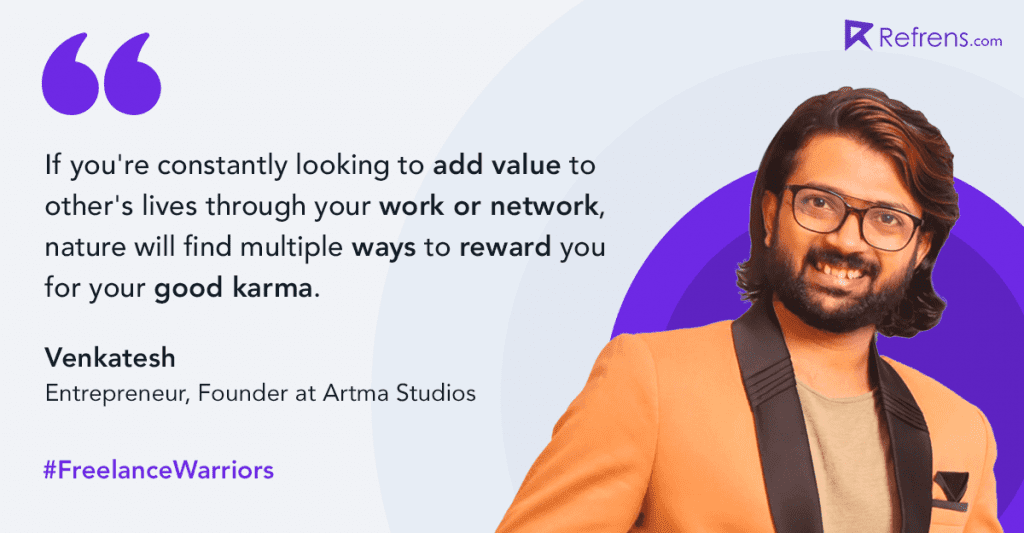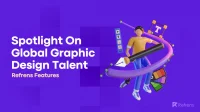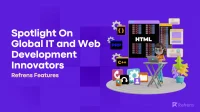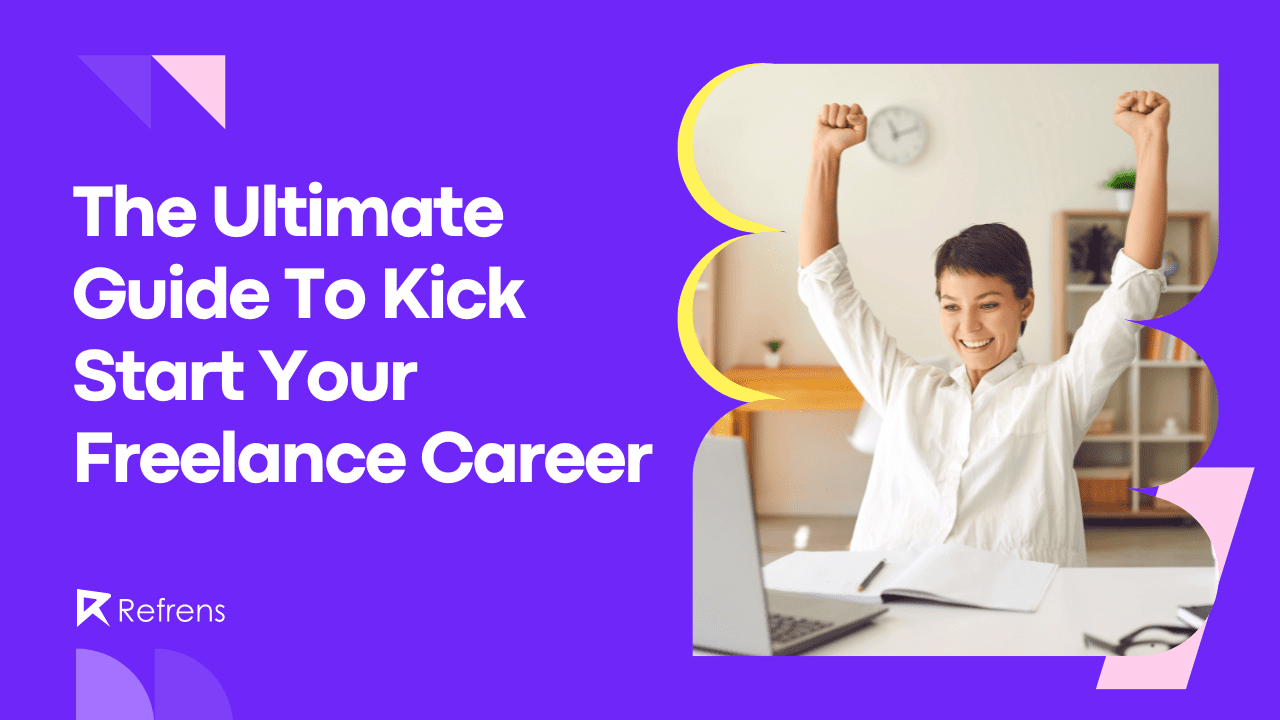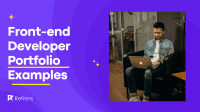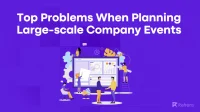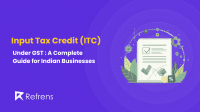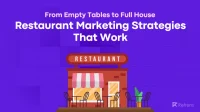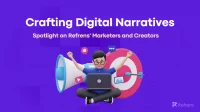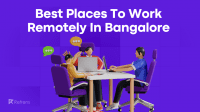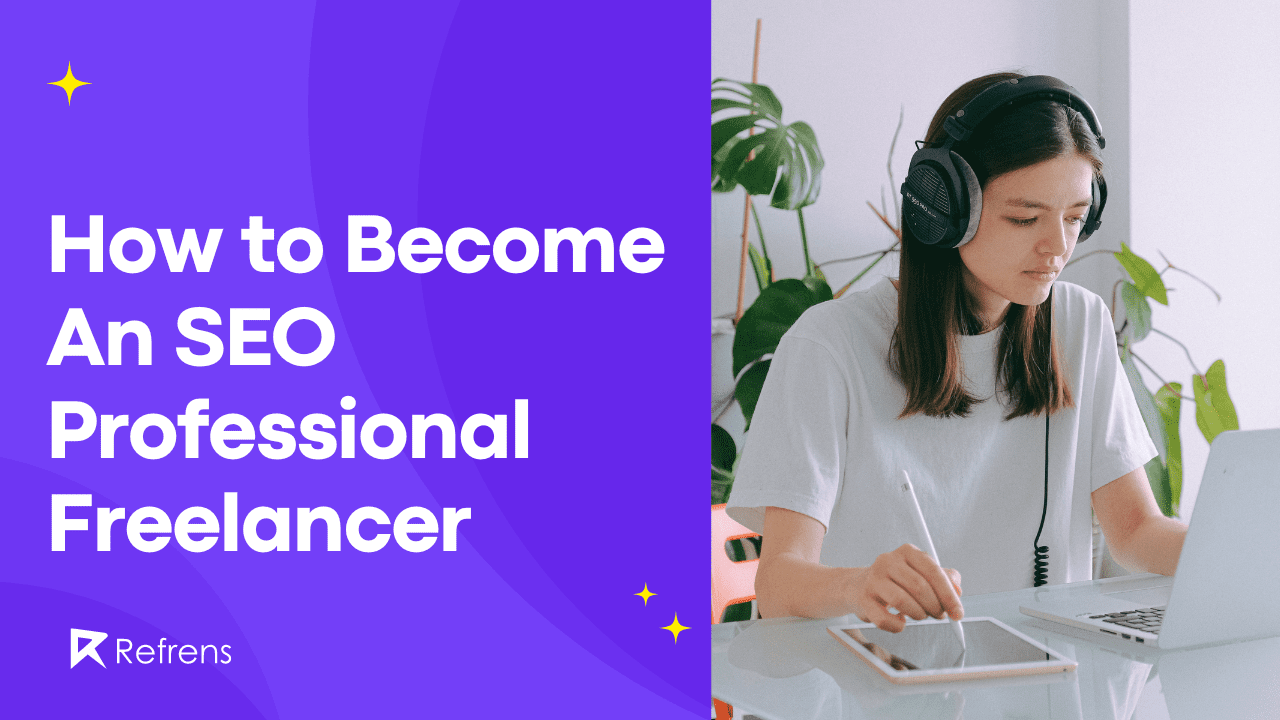“My grandma thinks I am still doing a daytime job“
~ Venkatesh, Artma Studios
Venkatesh, an IIM-K grad quit his full-time job to pursue his inner calling of becoming a full-time artist, and today he runs his design startup – Artma Studios where he’s worked with top Bollywood celebrities and made art for the likes of Salman Khan, Ajay Devgn, amongst a few.
Today Venkatesh’s company – Artma Studios is reshaping the world of visual art one client at a time. In our conversation with Venkatesh, he talks about the importance of having systems and processes in check to grow as a freelancer, and we uncover answers to questions an aspiring freelancer often asks themselves – “How to get clients”, “When to know if it’s time to pursue freelancing full-time?”, “Top challenges faced by freelancers”, etc.
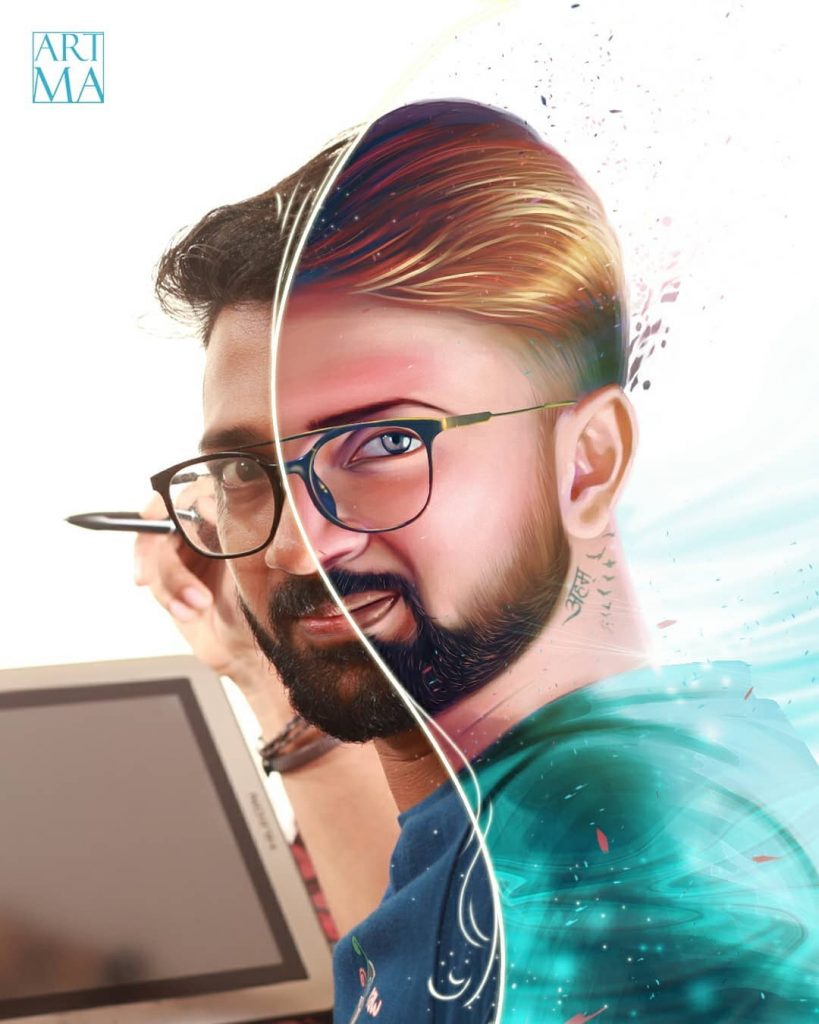
Venkatesh was introduced to art by his parents at a very young age, and he went on to complete formal training in painting from Rabindra Bharti University. Venkatesh later went on to study Electrical Engineering from NIT-Raipur, and pursue an MBA from IIM-Kozhikode.
In his professional white-collar jobs, Venkatesh learned and experimented with Digital Marketing to learn and explore the world of possibilities powered by the internet.
While pursuing his professional job, Venkatesh started exploring his creative interests to create personalised art for a few of his friends which allowed him to hone his skills, and build a small network of people who gave him the confidence to take the leap of faith, and quit his job to pursue his craft of making personalised art as a full-time affair.
Let’s explore Venkatesh’s story, and learn from his experiences as a freelancer.
Q1. How did you get your first few clients?
Do you mean my first few paid clients? Laughs. My first paid work was obviously from a friend, and I think everyone has this one friend who really cares about your work, and will do anything to support you and nudge you to pursue your passion.
My first few clients came in while I was still at my full-time job through friends and referrals. I think that allowed me to test the waters, and see if my craft could fetch me some money, and that was the biggest validation that I had. My inner circle trusted my work, and that was a big confidence booster.
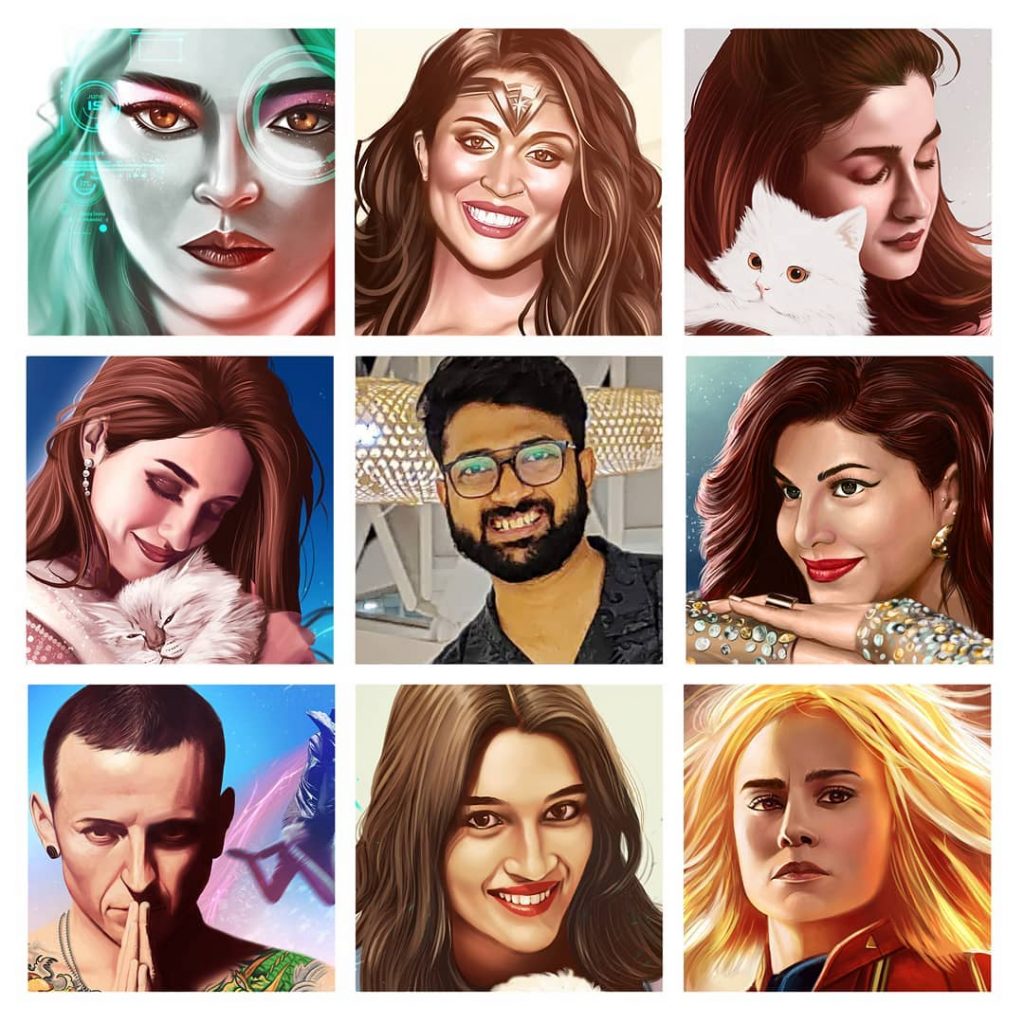
Q2. What would your recommendation be for someone who’s starting out, and is looking for work?
I think the most reliable way to find authentic work is through your own network, and believe it or not, but if you look into your own contact lists, you might find yourself some leads who can give you some work, or might know someone who’s looking for someone just like you.
Take any example around you, and you’ll notice that the first client is always someone from the immediate network. The first few projects aren’t about the work, rather about the relationship you have with the people around you. If you’re looking for work, network, and do it not to take, rather give.
If you’re constantly looking to add value to other’s lives through your work or network, nature will find multiple ways to reward you for your good karma.
~ Venkatesh, Founder Artma Studios
Q3. Quitting your job, How did you know when to quit?
“You can’t do both together”, that’s what my company HR said when I approached him and told him about my side project, and I was asked to stop my side-hustle if I wanted to continue with my daytime job, and I guess the artist in me rebelled against that thought of having to stop doing something I truly loved.
And that’s when I decided to move on, and the good thing about my decision was that I already had a set of clients who had put their trust in my work, and that inspired me to take the leap of faith with my decision. Hence, the decision to quit and pursue this full-time came very naturally.
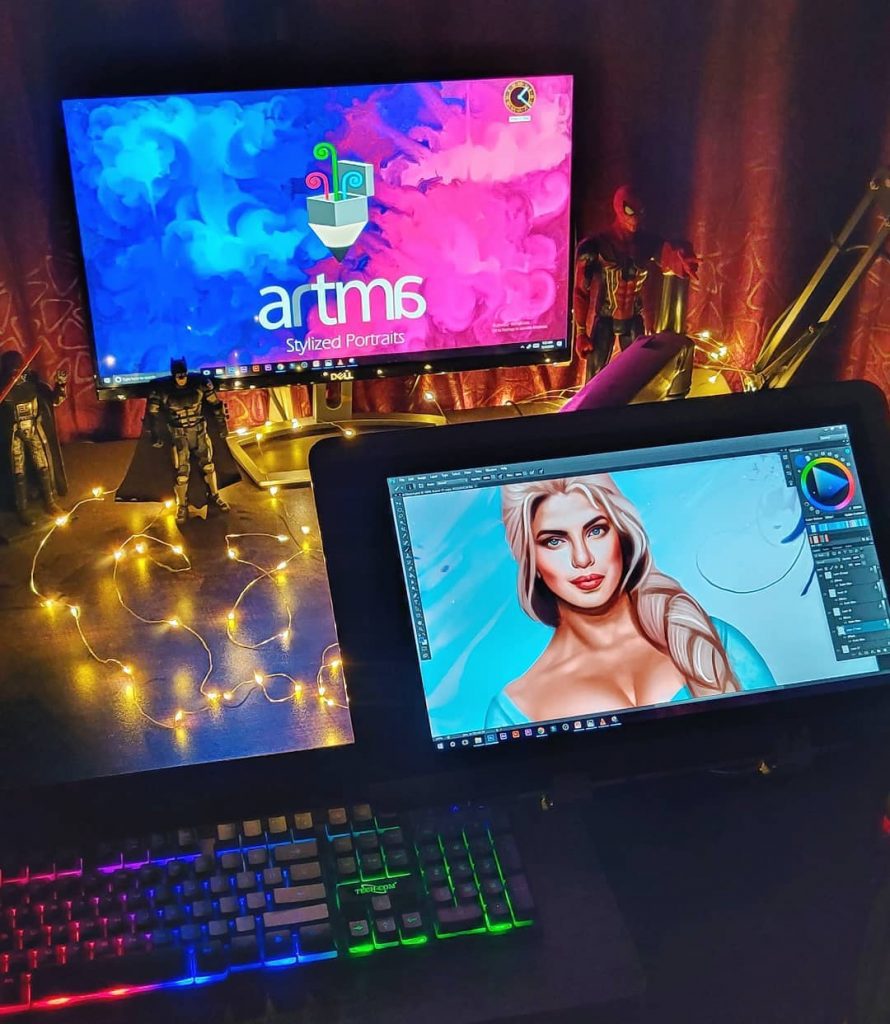
Q4. How did you convince your Family to support you in the decision to quit your job, and pursue your passion of creating art?
I think this question is about getting the approval of your support system, and I think for me it was my wife – Sunaina. Back then when we were dating, I told her about my thoughts of going full-time with Artma, and having her by my side was really helpful.
Although we were in a phase full of uncertainties, her support gave me the strength to take the leap of faith, and quit my job to pursue art, and design full-time.
Q5. How can someone convince their parents/family to let them pursue their dream of doing something on their own?
The people who care about you will always wish good for you, and if you’re able to gain their trust, then they will happily let you do whatever your heart desires.
When I wanted to quit my job, my family was fine with the decision because I had been away from home for almost 10 years, and while this was happening, I had graduated, worked for 2 years, did my MBA from IIM-K, worked again for 2 years, and I guess this allowed them to trust me with my decisions.
In my opinion, the best way to go about getting the support of people you care about is by winning their Trust, and before you win their trust it’s super important to know if you can trust yourself.
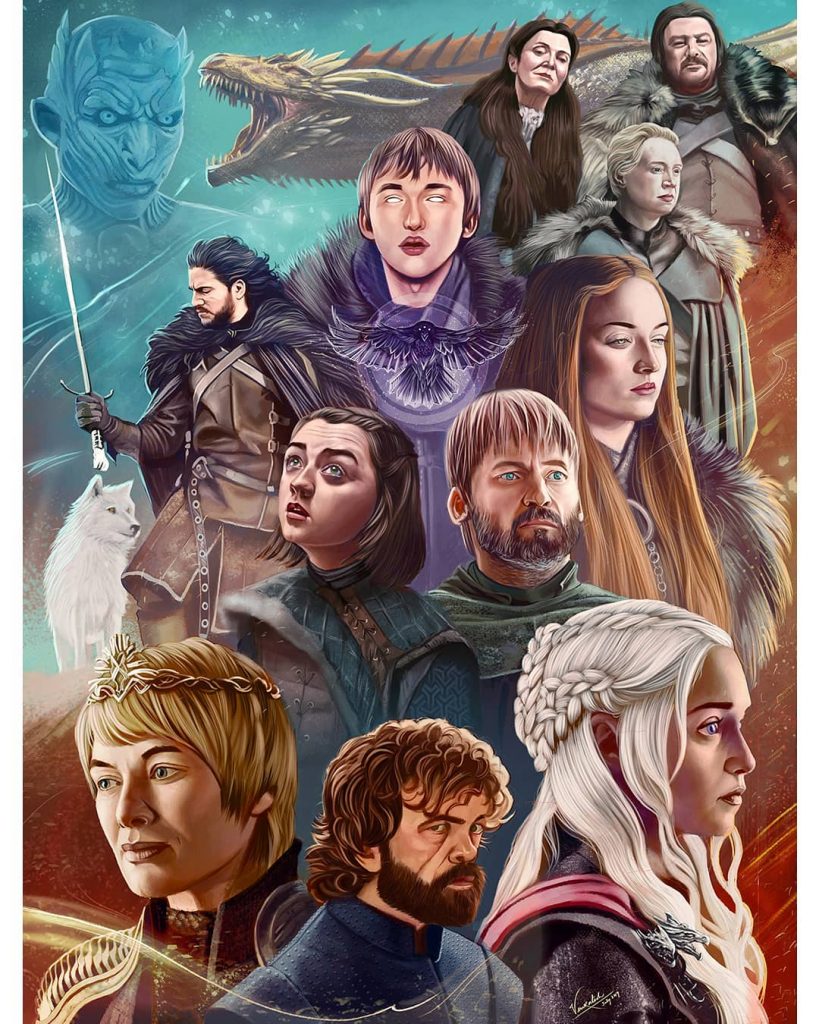
Q6. What does your typical routine look like?
The best part about being self-employed is having the luxury and the freedom to decide when you want to work, and I am definitely not a morning person. I usually begin my day at 11 am, and begin it with some light exercising, and my daily affirmations.
Then I work from 1 to 7pm, and then I take some rest to have dinner, spend some time with my family, and later get back to work late till 3am, and I think this routine has worked out pretty well for me.
Q7. How do you solve being the bottleneck in the progress of your growth?
I think something that’s working out for me is having systems and processes in place. This allows me to leverage tech, and available human resources(fellow freelancers) to delegate work and that frees my time and mental bandwidth to be able to focus on my plans and think with the bigger picture kept into perspective.
and in my suggestions if you’re a freelancer or a small business and struggling to grow, then you might want to pause, and look for a way to build systems that can automate certain aspects of your business.
Doing so not only saves you a lot of time, but it also gives you the mental bandwidth required to think of the bigger picture and plan accordingly.
Q8. What would be your top 3 advice to someone who’s into freelancing or practicing their craft full-time?
Well, it’s a difficult thing to answer considering how dynamic freelance work can get, but overall I would say these are the 3 most important suggestions I can hand out –
- Network – As a freelancer, it’s very important to have a diverse network of people that you are connected to, and good networks are built on the foundation of trust, and empathy. The biggest challenge I see with people wanting to network today is that they come to you, and immediately demand something – “A follow back, or a referral, or something”, and to be honest that turns people down. If you’re looking to build a good network, then you should be empathetic towards the person you wish to connect with, and once you do so, you will notice a change in your strategy, and notice positive changes.
- Doing your work diligently – What’s the point of working, if one cannot give their best in the project? When I work, I usually like going the extra mile where my goal is to delight my clients and do something that they don’t expect.
I think the best way to grow as a freelancer is to be able to dedicate your heart, and soul into the project that you take up, and treat it like it were your own. Following this strategy has been very rewarding for me in my professional journey so far. - Constantly improving – You should be able to enjoy learning. Complacency is the biggest enemy of progress, and if one stops learning or wanting to improve, then their craft will decay. Instead of binging on Netflix shows, I usually find myself watching random art tutorial videos, and although I might not be consciously learning, my subconscious mind is always picking up signals from my surroundings to help me improve as a professional.
Pro tip – If you’re a freelancer, I highly recommend that you learn “Digital Marketing” because it is one of the most important skills you can build to leverage the power of online marketing to grow your business.
Bottom line – Keep learning, and don’t stop.
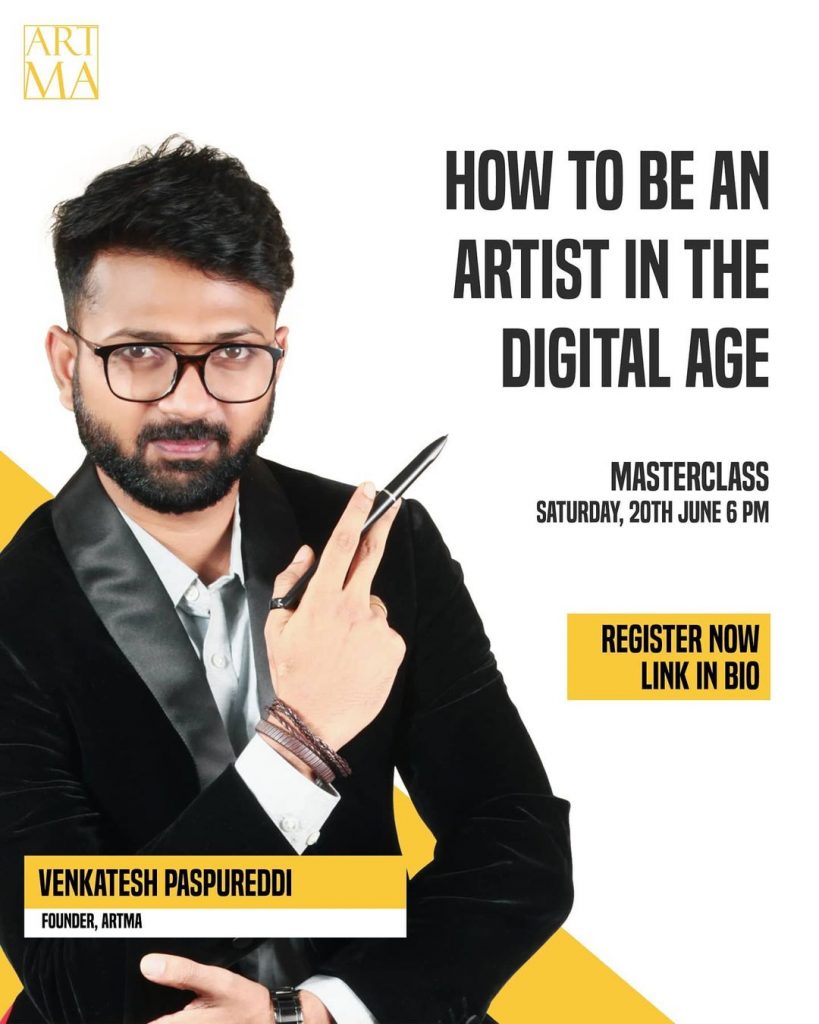
Q9. What strategies did you use to cope with the Global Pandemic?
The demand for personalized art did go down due to the uncertainties, and challenges posed by the Pandemic, and the best way for me to cope was to evolve, and that’s when I noticed an opportunity of being able to create educational content on design and organize workshops that allowed fellow artists in the community to enable them to adapt.
In fact, the lockdown allowed me to experiment, and it’s opened up a new channel of opportunities which has allowed me to diversify my business offerings and move closer towards creating a sustainable business.
Q10. How do you ensure a steady flow of income, especially when there’s low demand?
I thankfully picked up skills in Digital Marketing while I was working at my full-time job, and I think those skills have helped me incredibly to help me sustain myself when the art/design side of my work was still picking up.
I offer end to end Digital Marketing services which include Campaign strategy, design, and execution all bundled into one, This allows me to retain clients, and increase my average earnings since this saves the clients all the time and trouble of coordination with multiple vendors.
Q11. What are your thoughts about spending money to grow business?
When I started out I wanted to stay bootstrapped and decided against spending money, and. that allowed me to closely study my business scope, and now when I have to spend money I know exactly where I am spending, and that allows me to optimize my spend for maximum ROI.
Money gives you speed, and helps you build momentum fast.
Q12. Any book suggestions for an aspiring freelancer?
Limitless by Jim Kwik. This book teaches you to learn things at a faster pace, perhaps 2X or 4X the intended speed, and allows you to open your mind to unleash the potential that is needed for an actionable daily life.
When I read this book I learned to notice a few of my biases and being aware of my mental gaps allowed me to work on it, improve, and constantly find ways to improve.
Q13. What are your thoughts on the work we do at Refrens?
Looking at my freelance career my first few clients came through referrals, and those referrals led to more, and I think the best of my clients have come from referrals, and when I hear about Refrens building a curated marketplace powered by referrals, it gets me excited.
Q14. Any parting piece of advice to someone who aspires to do what you do?
Be honest to your work, and it should do the magic. In my entire freelancing, and professional experience one thing that I have seen common amongst all great professionals – “They are brutally honest with their work, so if you wish to shine, and be known for your craft – Give your best, and be honest with the work you do”.
Connect with Venkatesh on his Social Handles, here. Instagram, and Twitter.
Editor’s Note –
My key takeaway from my conversation with Venkatesh would be – “If you’re aspiring to pursue your interest or hobbies as a full-time professional affair, it’s best to first test the waters by reaching out to a few people, and get them to trust you with their work”.
Going full-time is not about making calculated decisions, but taking that leap of faith where you trust your work and believe that you can handle whatever comes your way, and while that’s happening, it’s always good to keep learning.

